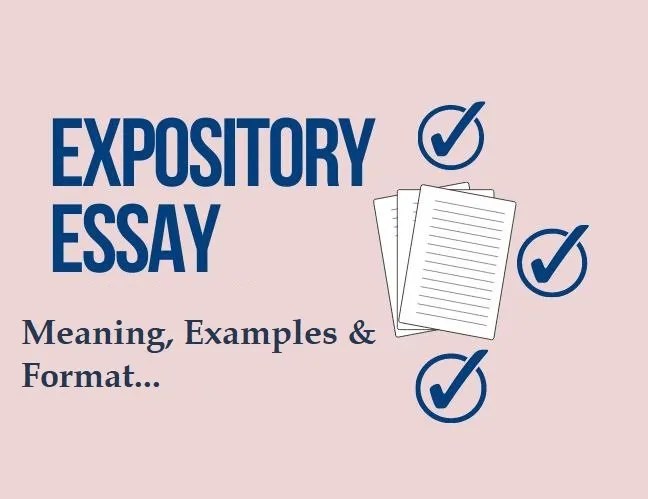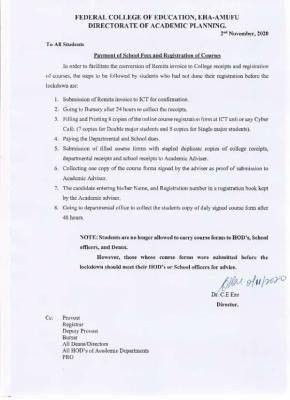
What is an Expository Essay?
An expository essay is one that conveys information through facts. Expository writing is the general term for this kind of writing. Expository essays use a variety of frameworks, such as compare and contrast, process essays, and cause and effect analysis, to convey their points of view.
One of the four main styles of writing is expository writing. The other types of writing include narrative, descriptive, and persuasive.
Expository Writing’s Objective
The goal of expository writing is to inform the reader. Although it might also amuse or convince the reader, these are side effects and not the author’s intention. Expository writing that is well-written displays the author’s knowledge of the subject and, frequently, how they came to know it.
You might be required to write an essay about the class’s mock trial, for instance. You would introduce the task and the case your class worked on throughout the trial in this essay. You would then go on to discuss each stage of the mock trial procedure (discovery, opening statements, cross-examination, closing arguments, jury deliberation, and verdict), as well as how your class handled each of these stages, in the subsequent body paragraphs. You would state the decision your class made as well as the judge’s decision in the concluding paragraph.
You don’t provide a case for or against the judgment in your essay about the simulated trial. It basically outlines the steps your class used to progress through the court proceedings and comprehend how actual court cases are handled. In other words, rather than offering a remark or opinion, your essay would convey facts and a procedure.
Expository Essay Types
Expository essays can take many different formats as we already mentioned. Examples of expository essay types are:
1. Classification Essays
A classification essay discusses a variety of topics within a single category while highlighting the traits that distinguish each topic from the others in the category as well as those that tie them together. A categorization essay about various herding dog breeds, for instance, may be written. Starting with a thesis statement that describes how herding breeds differ from other types of dog breeds, your essay would go on to discuss specific herding breeds in each of the subsequent paragraphs (corgi, collie, heeler, etc.).
2. Definitional essays
In a definition essay, the subject is defined by providing precise information about it. By offering firsthand descriptions of the event from original sources and examining pertinent social, political, and economic developments that had an impact on the event and altered perceptions of it, your definition essay might dispel frequently repeated fallacies about a historical event.
3. Method essays
An essay that describes a method or process takes the reader through each stage of carrying out a task. A process essay and a recipe have a lot in common. The first paragraph of a process essay should describe the procedure that will be discussed and the outcome of following the instructions. Following an explanation of what the reader should have accomplished by completing each step in the body paragraphs, the conclusion wraps up the procedure.
4. Essays that compare and contrast
In a compare and contrast essay, you defend your thesis statement by comparing and contrasting the given sources. You may, for instance, compare and contrast the dress codes at your school with those at two other nearby schools in an essay. The distinctions in what types of clothing are permitted and not permitted, the general clarity of each dress code’s terminology, and the amount of “gray area” present in each policy could all be examined in your body paragraphs.
5. Essays on causes and effects
A cause-and-effect essay explores how particular incidents or behaviors led to subsequent events, as the name suggests. Sometimes they follow the progression of events to investigate why we are in the current situation that we are. An essay analyzing how altering market patterns over the previous few decades has affected the industries in your area and produced the current local economy would be an example of a cause-and-effect essay.
Format of An Expository Essay
Expository essays have the same basic format as other types of essays: an introduction, a body of paragraphs that support and elaborate on the ideas you made in your introduction, and a conclusion that restates your thesis.
There is no required word count for your essay, unless your teacher specifies one, and there is no set length for essays, however, there are some essay tips and strategies you can follow when writing one. The same is true for the quantity of paragraphs; nonetheless, they must communicate your views fully and accurately. Give or take the amount of body paragraphs for the number of supporting points you make, your essay should adhere to the following structure to accomplish this goal:
1. Introduction
You convey your essay topic and thesis statement in the introduction, hopefully grabbing the reader’s attention with interesting details. You also provide all the background information required for the reader to understand your thesis, as well as your supporting arguments.
2. Essay Body
You need a separate body paragraph for each supporting statement you make. Although the five-paragraph essay is sometimes regarded as the “standard” essay length, your thesis statement may require a six-paragraph or longer essay to be fully communicated.
3. Essay body
To transition between body paragraphs, use transitional phrases and sentences. The phrases that indicate the relationship between two paragraphs, indicating to the reader why you are making a particular point and how that point fits into your entire work, are known as transition words and sentences.
4. Essay body
You must make the transition to your conclusion in the last sentence of your body paragraph. This does not imply that you should begin summarizing now; instead, provide your final body paragraph with the same level of detail and insight that you did in the preceding
Conclusion
You restate your thesis in the conclusion and list the key points from your body paragraphs. Any loose ends should be neatly tied off, and any questions the reader might have should be addressed.
How should an explanatory essay be formatted?
Learn the etiquette and guidelines for essay writing before you start your next expository essay. You can structure your essay using the fundamental rules provided above, and you can decide how best to present your material. However, since you are writing an expository essay, it is equally crucial that you comprehend and take into account all the features that set expository essays apart from other types of writing. The guidelines for expository writing are as follows:
In your introductory paragraph, your thesis statement must be well-considered and delivered concisely. Your essay’s main argument, or thesis statement, serves as the foundation. A strong thesis statement communicates the stance of your essay, the context in which this view is taken, and the range of your essay’s body paragraphs. This may seem like a lot to say in one line, yet thesis statements typically consist of several long sentences. Here are two excellent thesis statement examples:
- In spite of the stigma, insects are a great source of protein and, if farmed sustainably, might help alleviate the world’s impending food crisis.
- Religious organizations and traditionalists’ opposition to rock ‘n’ roll music in the 1950s didn’t have the anticipated effect of making the genre less popular; instead, it increased its appeal.
- Your writing should have an intellectual, objective tone. Expository essays conform to conventional language and a neutral tone, whereas narrative and descriptive essays might adopt artistic, passionate, and well-known tones.
- Keep it factual. Your opinion should not be expressed in an expository essay, nor should the facts be presented in a way that attempts to sway the reader’s perception of them.
- Always be 100 per cent certain of the information you are presenting. This entails meticulously researching your sources, comparing them to other reliable sources, and accurately attributing each item you present as fact.
Similar to how you would begin writing any other paper, begin your expository essay by brainstorming. If you weren’t given a topic, you will need to choose one on your own; brainstorming is how you will choose a topic. You will also decide on your thesis statement, which is the key element of any expository essay. Once you have a thesis statement, you may start outlining your essay.
It’s time to create an outline for your essay once you have a concise thesis statement. It’s extremely crucial to offer factual facts in a logical manner while writing an expository essay. Noting your references for each paragraph in your plan might be quite beneficial.
It’s time to begin writing after the outline is finished. Through your first draft, editing, and your rewrite, adhere to the traditional writing method. Once you are done, make sure to carefully proofread your essay to check not just for grammar and spelling errors but also to confirm that you have correctly credited all of your sources and formatted it in accordance with the style manual you were given.
Example of Expository Essay: A calling that will make life worthwhile
Many adolescent people spend a lot of time thinking about what they want to do after high school. I am fortunate in that I already know; that since I was two or three years old, I made the decision to become a veterinarian. I want to be one of those individuals who treat animals with the respect and decency they deserve because, like humans, animals need people to do that.
As a result, I am making every effort at Reavis to set myself up for success in college. I will study and learn about all animal kinds once I start college. Last but not least, I will be content with my profession as a veterinarian since I know that I can aid animals when they need it. As a student at Reavis High School, I first try to remember my longstanding ambition to become a veterinarian. I have been taking my study here quite seriously since I am aware that becoming a veterinarian requires a person to be incredibly disciplined in addition to being extremely knowledgeable. As a result, I put forth a lot of effort to achieve good marks, I take pleasure in my work, and I have mastered time management. When I start college, these abilities will be especially helpful.
I must go to college after leaving Reavis since it is unquestionably necessary to become a veterinarian. In fact, in order to enroll in a veterinary program, one must already have a bachelor’s degree. Excellent leadership, public speaking, communication, and organizational skills are also required. After giving college a lot of thought, I have decided that the University of Illinois is where I want to enroll. It is an excellent institution, and they even offer a graduate program for those who want to study to become veterinarians. I’ll be able to work as a veterinarian once I have finished my training. The first perk of this vocation is the pay, which is one of several.
The typical veterinary salary is $60,000 per year, which would undoubtedly enable me to live comfortably. Additionally, it is a fulfilling job. The satisfaction of knowing that I am preserving or saving an animal’s life would come from this employment. Finally, I would have a lifetime of bliss if I became a veterinarian. Because I would be working with what I adore most, animals. I am certain that I would enjoy going to work every day. In conclusion, I want to become a veterinarian after I graduate from Reavis. I adore animals and want to help them in any way I can. Although I am only a freshman, I am aware of how quickly I am maturing. Life moves rather quickly, as Ferris Bueller famously says. If you don’t occasionally stop and look around, you can miss it.
Anyone should be able to produce different kinds of essays and an expository essay, thus learning how to do so is crucial. Expository writing is the type of writing where you position facts and observations to let them speak for themselves in the most powerful way possible; it’s not the type of writing where you want to be charming, clever, or edgy. It’s the style of writing you produce when you analyze the material you have been given to research, think critically about the ideas you have learned in this article, and justify the thought processes and conclusions you have drawn.




